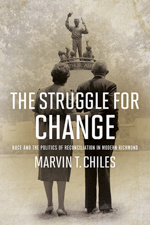Professor Marvin T. Chiles on Juneteenth
Professor Marvin T. Chiles on Juneteenth
“When I think about Juneteenth, I think about chicken and waffles. White people tell me that chicken and waffles is a Southern black delicacy. But I was born and raised black in the South, and we never ate that dish in my house…. Black folks ate chicken and waffles like we celebrated Juneteenth. That is to say we didn’t.”
The above quote is the response I received from a friend of mine about his opinions on the Juneteenth holiday. Responses like this are not uncommon in black circles. For many people across the country, Juneteenth meant nothing until it became a widely celebrated holiday after the 2020 unrest stemming from George Floyd’s death. This is a pity because the wide acceptance of Juneteenth as a national holiday is an opportunity to remember the purpose of not just that day, but the way black people used public celebrations to express their desires for full American citizenship.
First acknowledged on April 3rd—the day Richmond fell to the Union Army in 1865, and later celebrated on January 1st, Emancipation Day was black America’s Independence Day. White Americans never acknowledged Emancipation Day, but black communities in Richmond closed their schools and businesses and took to the segregated streets to celebrate the end of slavery and birth of black citizenship. Local civic groups led parades; street vendors sold refreshments and trinkets for participants; historians gave lectures about the black past; and ministers took center stage to preach about the foundation of the newfound black citizenship: faith, family, industry, and political activism.
Black Richmonders, Virginians, and Southerners celebrated Emancipation Day less and less by the mid-20th century. The reason was simple: the same former slaves who created Emancipation Day had mostly died off. What was once a public spectacle and de facto call for equal citizenship amidst the half-citizenship of Jim Crow segregation had become a series of church sermons. For black Richmonders, these sermons took place at sanctuaries such as Moore Street Baptist Church and First African Baptist Church.
This movement to celebrate black holidays as American holidays extended to public celebrations. Public history organizations desired to bring back Emancipation Day under the black public holiday that did survive the test of time, and that was Juneteenth. Richmond was like many cities in adopting Juneteenth as a local day of celebration by the mid-1990s, when institutions such as the Virginia Historical Society (now the Virginia Museum of History and Culture) hosted exhibits from outside public history organizations.
By the 21st century, Juneteenth was an institutional black holiday around the nation. Along with white-and-interracially run organizations, every historically black college and university celebrated Juneteenth by the year 2000. Many black churches adopted the holiday as well. Yet, for black Gen Xers and Millennials born and raised outside of the Deep South, Juneteenth still has little legitimacy as a real black holiday.
Let this Juneteenth be one where a fuller story of its meaning resonates with black Americans to the point where they can celebrate it with whites in the spirit of reconciliation. Juneteenth represents the long legacy of black patriotic celebratory activism. It shows that black people desired to participate in the American experiment despite centuries of mistreatment. It shows that white Americans have also tried to make amends for past sins. This is a history that everyone can and should get behind.
Marvin T. Chiles, PhD
Assistant Professor of African American History
Old Dominion University
Author of The Struggle to Change: Race and the Politics of Reconciliation in Modern Richmond
QuickLinks
Find a BookFor Our AuthorsRights and PermissionsRotunda Digital ImprintSupport UVA PressCareer OpportunitiesWalker Cowen Memorial PrizePrivacy PolicyContact Us
- P.O. Box 400318 (Postal)
- Charlottesville, VA 22904-4318
- 210 Sprigg Lane (Courier)
- Charlottesville, VA 22903-2417
- 434 924-3468 (main)
- 1-800-831-3406 (toll-free)
- 434 982-2655 (fax)

the future
of publishing
Affiliates



